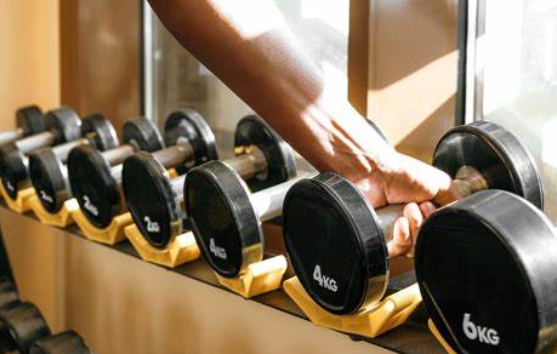Setting fitness goals is one of the most powerful tools you can use to achieve success in your fitness journey. Whether you’re aiming to lose weight, build strength, run a marathon, or simply improve overall health, having clear, specific goals helps keep you motivated, focused, and on track. Fitness goals provide direction, measure progress, and create a sense of accomplishment when you achieve them. However, setting effective fitness goals requires thought and planning to ensure that they are realistic, measurable, and aligned with your long-term objectives.
One of the key benefits of setting fitness goals is the ability to stay motivated. It’s easy to lose focus or get discouraged when you don’t have a clear target to work toward. Without goals, workouts can start to feel aimless or repetitive. When you set specific goals, they act as a source of motivation, reminding you why you’re working out and pushing you to keep going. Each small step toward achieving your goal helps you build momentum and gives you something to look forward to, keeping you excited about your fitness journey.
Another benefit of fitness goals is the ability to measure progress. Progress can sometimes feel slow, especially when you’re just starting out or working toward a larger goal. However, with clear goals in place, you can track improvements over time and see how far you’ve come. Whether it’s adding more weight to your lifts, running a faster mile, or increasing the number of push-ups you can do, these incremental progress markers help you stay encouraged and provide a sense of achievement. Tracking progress is also useful for adjusting your workouts to ensure you’re always challenging yourself and avoiding plateaus.
Setting fitness goals also helps with time management. In a busy life, it can be hard to find time to work out, but having goals in place ensures that you prioritize your fitness routine. When you have specific targets, it becomes easier to schedule workouts and make them a non-negotiable part of your week. Whether it’s committing to exercise three times a week or setting aside 30 minutes each day, fitness goals help you structure your time and create healthy habits that contribute to long-term success.
In order to set effective fitness goals, it’s essential to make them SMART: Specific, Measurable, Achievable, Relevant, and Time-bound. A goal like “get fit” is too vague to be useful. Instead, break it down into smaller, more actionable targets, such as “lose 10 pounds in three months” or “run a 5K in under 30 minutes by the end of the year.” These types of goals are easier to track and provide a clear path to success.
Specific goals provide clarity about what you want to achieve, while measurable goals allow you to track your progress. Achievable goals ensure that you’re challenging yourself, but not setting yourself up for failure. Relevant goals are aligned with your personal motivations and long-term fitness aspirations, and time-bound goals create a sense of urgency and help you stay focused.
It’s also important to set both short-term and long-term goals. Short-term goals help you stay focused on the day-to-day process and give you something to strive for in the immediate future. Long-term goals, on the other hand, give you a bigger vision and purpose for your fitness journey. By balancing short-term and long-term goals, you can maintain motivation and momentum while working toward the bigger picture.
Another important aspect of goal setting is flexibility. Life is unpredictable, and there may be times when you encounter setbacks, such as illness, injury, or other personal challenges. While it’s important to stay committed to your goals, it’s equally important to adapt when necessary. Adjusting your goals based on changing circumstances or difficulties shows resilience and helps you maintain a positive mindset in the face of obstacles.
Finally, celebrating your achievements is an essential part of the goal-setting process. Achieving fitness goals, no matter how big or small, should be acknowledged and celebrated. This reinforces the positive habits and behaviors you’ve developed along the way and helps you stay motivated to keep going. Whether it’s treating yourself to a new workout outfit or simply taking a moment to reflect on how far you’ve come, rewarding yourself keeps the process enjoyable and fulfilling.
In conclusion, setting fitness goals is a powerful way to stay motivated, track progress, and maintain focus on your fitness journey. By creating specific, measurable, achievable, relevant, and time-bound goals, you can break down larger objectives into manageable steps and create a clear roadmap for success. Remember to set both short-term and long-term goals, be flexible when necessary, and celebrate your achievements along the way. Fitness goals are the foundation of lasting success, and by setting them, you’ll be well on your way to achieving the results you desire.





